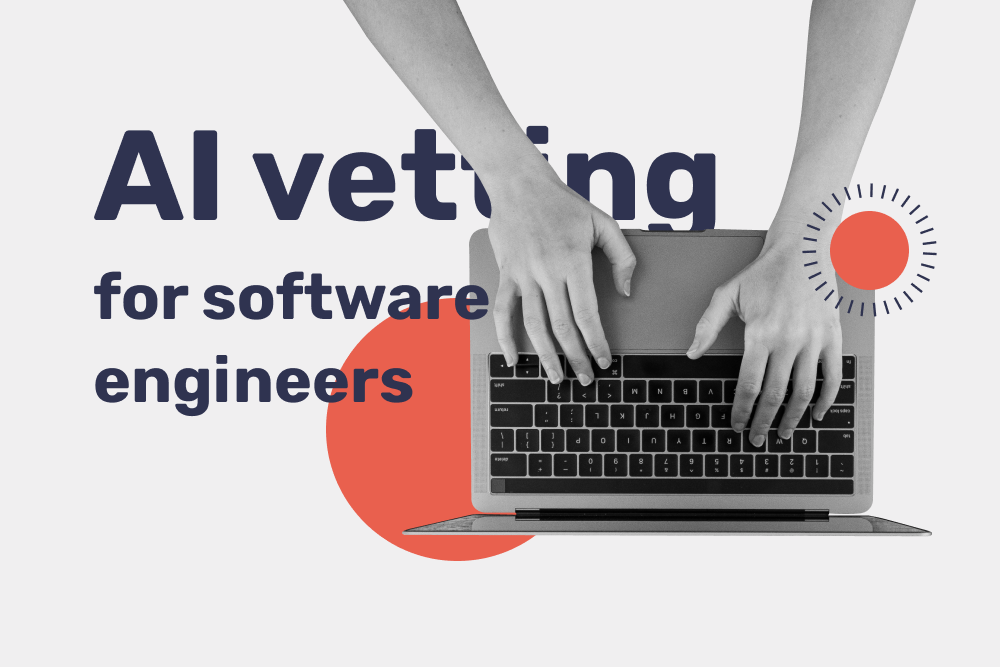Few people outside of LatAm know about giants like MercadoLibre. LatAm’s answer to Amazon. The company’s name translates to “free market,” a fitting name for a marketplace. And even fewer people know that it was an Argentine named Marcos Galperin that launched what would become a sought-after stock option. It’s up 160% YoY and now trades 8,900% higher than its 2007 IPO price.
But this article isn’t about just one company — it’s about Argentina’s other successful companies and startups. Despite a harsh economic and political climate, Argentines have broken through the barriers by employing talented individuals and having a forward-thinking mindset.
Today, many Fintech, AI and Blockchain startups are popping up all over Argentina, and in our opinion, the mythical unicorn may soon become a more common appearance in the land of silver (Argentum is Latin for silver).
Famous Argentine Entrepreneurs and Pioneers
The people we’ll look at all got started at different times in Argentina’s history, from 1999-2016. They met challenges, overcame them, and now they’re famous enough to write about. It all begins with an idea, a single step,
We chose Marcos Galperin, CEO of MercadoLibre, Eugenio Pace, CEO of Auth0, Pierpaolo Barbieri, CEO of Ualá, Wences Casares, CEO of Xapo, and Emiliano Kargieman, CEO of Satellogic. They represent different industries, ecommerce, SaaS, Fintech, and Space Tech.
Marcos Galperin, Founder & CEO of MercadoLibre
Marcos is a Wharton School graduate and Stanford MBA, who together with two of his Stanford buddies launched MercadoLibre in 1999. But before that, he briefly worked as an associate for JPMorgan and YPF, an Argentina energy company.
In an interview with his alma mater, Marcos mentions that, at the time, the regulations were behind the times, there was no infrastructure, logistics were a nightmare, and the government was only beginning to adjust to the new tech era.
Despite the rocky start, MercadoLibre expanded into other LatAm countries, partnered with eBay, and is by far LatAm’s favorite ecommerce site. And Marcos and co. are continuing to push for innovation. They launched Mercado Pago, a payment platform for LatAm, and has invested $700 million in improving infrastructure in Brazil.
Eugenio Pace, CEO of Auth0
Eugenio has a thirst for knowledge (and innovation). He has two degrees from Buenos Aires Technology Institute (Instituto Tecnológico de Buenos Aires) in Electrical Engineering and Computer Science. After graduating, he worked as a software developer for an Argentina bank. Then, he joined Microsoft, where he would climb the career path from Consultant to Principal Lead Program Manager over a 13-year tenure.
Perhaps it was the beauty of Washington state that spurred him on to put down roots first in Redmond and then in Bellevue, WA by co-founding Auth0, an identity management service. Eight years later, in 2021, Auth0 was acquired by Okta, another big player in the identity management sector, for $6.5 billion. Eugenio is staying on as CEO of his company, as he joins forces with Okta.
Pierpaolo Barbieri, CEO of Ualá
While it’s unclear if Pierpaolo’s brainchild Fintech startup Ualá has reached unicorn status (it has been estimated to be near the $1 billion mark), Pierpaolo is already a unicorn himself. He grew up in Buenos Aires, Argentina and went on to study at Harvard and Cambridge, earning multiple degrees in History and Economics. He wrote a book titled Shadow Empire: The Nazis and the Spanish Civil War. Yes, we’re still talking about the same guy that founded a Fintech startup.
And if that’s not unique enough, he launched two companies in quick succession — Greenmantle, a macroeconomic and geopolitical advisory firm — and Ualá, a neobank app for personal financial management.
Ualá and other Argentine/LatAm Fintechs are seeing excellent market penetration because the population is mostly unbanked, however, almost everyone owns a smartphone. Ualá recently acquired digital lender Wilobank to strengthen its financial ecosystem.
Wences Casares, CEO of Xapo
You can’t talk about Argentine entrepreneurs without mentioning Wences. He studied Business Administration first in a private Argentine university, and then at Harvard Business School.
Wences has been a pioneer in online finance since 1997 when he founded Patagon, an online bank, which was bought for $540 million in 2000. After a six-year stint as the Founder and CEO of a video game development company, Wences returned to Fintech in 2011 with a new startup, Lemon Wallet — a digital vault for storing copies of rewards and payment cards online. It was also in 2011, just two years after the first Bitcoin was mined when Wences created a storage vault for his Bitcoins. In 2014, after scaling and developing the vault, it became Xapo.
As Wences has said in interviews, cryptocurrencies caught his eye because they’re decentralized. And due to Argentina’s economic fluctuations, decentralized finance can become the bedrock on which society can grow.
Emiliano Kargieman, CEO of Satellogic
Emiliano is a tech pioneer with an educational background in Mathematics and Philosophy. In 1996 he founded Core Security Technologies, one of the first automated penetration testing software companies. Emiliano led the company for nearly 20 years, stepping down in 2015. With a strong tech offering, he and Core were able to attract clients such as Apple, Cisco, Homeland Security, NSA, NASA, Lockheed Martin, and DARPA.
In 2010, he completed NASA’s Singularity University, where he first got the idea for developing better satellites. That idea would eventually become Satellogic.
Satellogic specializes in Earth-Observation satellites for various applications, including forestry, agriculture, energy, and finance and insurance. They work with space agencies from around the world, and most recently signed a multi-launch agreement with SpaceX.
Argentina’s Tech and Business Scene
A burgeoning tech scene doesn’t happen spontaneously. And what’s more — there has to be progress (fuel for the fire). Argentina’s tech scene began transforming in the late 90s, as Internet access became widely available and the software revolution caught on.
5 Qs to Ask Yourself Before Hiring in Latin America (Legal, Costs, Culture etc.)
Progress in the tech world has been lightning fast thanks to projects like IncuBAte and Startup Buenos Aires. IncuBAte (BA is capitalized for Buenos Aires) is a program for budding entrepreneurs set up by the local city government. The support system that is incuBAte helps educate and fund startups through government resources, outside investments, and co-working spaces to help businesses grow. StartUp Buenos Aires (SUBA) is a community of seasoned veterans and people looking to launch their startups. The initiative helps educate, inspire, connect, and support startups and entrepreneurs. SUBA offers free classes, access to engineering resources (and potential job offers), as well as funding.
How the Argentine Government Supports Entrepreneurship
Government incentives have been slow to arrive, but they are now rolling in. In 2017, the Entrepreneurship Law was passed, which gave founders the ability to get registered within 24 hours, receive tax breaks, crowdfunding and support
“This government assumed the responsibility of supporting Argentines with their ideas because it believes in their potential. As part of the National Productive Plan, we are removing obstacles, promoting innovation and improving access to financing for the creation of new companies,” said the Minister of Production, Francisco Cabrera.
The Argentines we’ve spoken with are still sceptical about the government actually providing real support. However, funding has been doled out and successful startups have come out of incuBAte and other programs.
US Tech Companies That Have R&D Offices in Argentina (Google, Salesforce, IBM and more!)
“Entrepreneur is anyone who has an innovative idea and is willing to take risks to make it come true. Argentina has that spirit in its DNA and that is what we want to promote ”, said the Secretary for Entrepreneurs and SMEs, Mariano Mayer.
Knowledge Economy
The second breakthrough law was the Knowledge-based or Knowledge Economy. It forms a framework of easing the tax burden for companies that generate value, create new products and services, and improve the quality of life of people.
These are the industries that the Knowledge Economy accepts:
- Software development
- Audiovisual production or post-production
- Biotechnology
- Geological and prospecting services
- Services related to electronics and communications
- Professional services
- Nanotechnology and nanoscience
- Aerospace and satellite industry
- Space technologies
- Nuclear engineering
KPMG dissected the new law and found these four main benefits:
- A reduced rate of income tax (up to 60% depending on the size of the company)
- A non-transferable tax credit of up to 70% of the employer’s social security contributions
- An exemption from value-added tax (VAT) withholdings and collections (but only for exporters)
- An exemption from customs duties on the export of services
The Knowledge Economy Law was updated in late 2020, amid economic troubles, and it is yet to be seen how much effect it will have.
Examples of Companies Started in Argentina
Every year, there are more and more startups being launched. And what’s unique about Argentine startups is the variety and scale. Take MercadoLibre, an all-LatAm e-commerce site, Satellogic, the only space tech that we know of in LatAm, and hundreds of Fintech startups. If you asked a software engineer 5-10 years ago if there were innovative startups in Argentina, they’d probably name MercadoLibre. But today, there’s no doubt that engineers can take part in creating locally funded, launched, and headquartered tech and services.
EMI Labs
EMI Labs Is An Argentine Hrtech Recruitment Platform For Operational Roles In Logistics And Distribution.
- Sector: HRtech
- Stage: Seed/Incubator
- Year Founded: 2017
Afluenta
Afluenta Is A Peer-to-peer Lending Network That Brings Together Investors And Creditworthy Borrowers.
- Sector: Fintech
- Stage: Expansion Stage
- Year Founded: 2010
Agrofy
Agrofy Is An Online Agribusiness Marketplace, Matching Buyers And Sellers Of Farm Machinery, Land, Tools, Equipment, Insurance, And Other Financial Services.
- Sector: Agtech
- Stage: Early Stage
- Year Founded: 2015
Alquilando
Alquilando Is An Online Long-term Rental Marketplace That Helps Minimize Risk And Guarantees On-time Payments.
- Sector: Proptech
- Stage: Seed/Incubator
- Year Founded: 2017
Satellogic
Satellogic Is An Argentine Spacetech Company Focused On Developing Infrastructure To Improve Geospatial Analytics.
- Sector Spacetech
- Stage Early Stage
- Year Founded 2010
Ualá
Ualá Is A Personal Financial Management Mobile App Developed In Argentina That Allows Users To Conduct Financial Transactions.
- Sector Fintech
- Stage: Expansion Stage
- Year Founded: 2016
Takeaways — Examples of Companies Started in Argentina
Some people say Argentina’s unicorn-factory past is long gone. We believe it’s just beginning. The reason? Tech talent, proximity to the US, outsourcing experience, and strong education.
One thing that plagues many companies outside the US is the need to shift headquarters to Silicon Valley to scale and grow. Funding and support should be available anywhere in the world, and that’s what we hope Argentina sees very soon. If you’re looking for talent, check out Argentina. Don’t know where to start? Ask us! We partner with talent agencies in LatAm and we can find Argentina software engineers who have the right skills.
4 Reasons Why You Should Hire Software Engineers in Argentina
![Examples of Companies Started in Argentina [+Tech Pioneers and Startup Scene]](https://bridgeteams.com/wp-content/uploads/2021/05/Examples-of-companies-started-in-Argentina.jpg)


